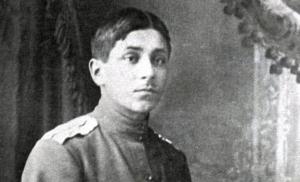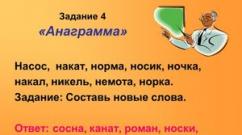Ivan Ivanovich Lepse: biography. The most private people
Fate allotted only forty years of life to this amazing man - a Latvian guy from the family of a laborer at a sawmill in Riga - Jan, or, as he was more often called, Ivan Lepse.
Hundreds of documents have been preserved in the archives, testifying to the enormous authority that this extraordinary man enjoyed among workers and employees.
Lepse was born in the summer of 1889. After graduating from a two-year primary school, he worked as a molder's apprentice in the foundry of the Felser plant in Riga. It was here that he first saw a strike of workers and became an involuntary witness to the brutal reprisal of the police against them. The picture of brutal violence was forever etched in his memory and pushed him on the path of struggle.
Therefore, already as a 15-year-old boy, he became a member of the Social Democratic organization, and in January 1905 he took part in strikes. From now on, Lepse is under police supervision. Later, the head of the Lifland gendarme department reported in top secret to St. Petersburg that a weapons warehouse and lists of a fighting squad had been found in Riga at house No. 2 on Klyuchevaya Street. The list included the name Lepse among others.
Despite the hard work of a foundry worker, Ivan intensively educates himself, attends four-year evening courses, and reads a lot. In 1907, he was elected chairman of the first cultural mission of the metalworkers' union in the Baltics. And since the beginning of the First World War, Lepse has been at the front. In one of the battles he was seriously wounded. After a long treatment in April 1916, Lepse, under the name Andrei Pukito, came to Petrograd, hiding from the police, and began working as a mechanic at the Schroeder factory.
IN REVOLUTIONARY PETROGRAD
His arrival in Petrograd coincided with the beginning of the struggle for the restoration and legalization of trade unions. I. Lepse was in its very center. Already in March 1917, he headed the trade union at the Schroeder factory, and soon he was elected a member of the Central Board of the Union of Metalworkers of the Petrograd Side. Together with Y. Sverdlov and A. Skorokhodov, he is running for the district Duma.
All further activities of Ivan Ivanovich are inextricably linked with the metalworkers’ trade union. Yes, in December
Since 1917, he has been in charge of the Petrograd Labor Exchange and is the secretary of the Central Board of the Petrograd Metalworkers' Union.
It was a difficult time. After Russia emerged from the war, it was necessary to transfer the national economy to the production of peaceful products: there was not enough fuel, raw materials and materials, factories were closed. Tens of thousands of workers were left without work. Trade unions, and especially the board of the metalworkers' union, provided them with great assistance. In December 1917, having discussed the issue of unemployment, it turned to the Tsentroles organization with a request to expand the work on collecting firewood, using the unemployed for this, and thereby reduce both unemployment and the shortage of fuel. On December 12, 1917, the board of the metalworkers' union, after Lepse's report “On unemployment and the work of the labor exchange,” decided to coordinate the funds of the union unemployment funds, organize public canteens and nutritional points for free food for the unemployed. Many factory committees used their own funds to repair canteen premises, create new ones, and provide them with the necessary equipment and utensils. Helping the unemployed became the most important concern of all trade unions.
Lepse paid special attention to the evacuation of the unemployed from Petrograd. Only from December 1917 to June 30
In 1918, 49,548 unemployed people and 51,865 members of their families were evacuated from Petrograd to the provinces.
These days, Lepse often visited factories and factories, spoke at rallies and meetings. His simple and intelligible speeches were close and understandable to the workers, and they believed him. He spoke openly and directly about difficulties, and if he promised help with materials, raw materials or fuel, he always delivered.
ON THE FRONTS OF THE CIVIL WAR
It thundered civil war. Ivan volunteered to defend the young republic. At the beginning of 1919 he was the 10th commissar rifle division and a member of the Revolutionary Military Council of the 7th Army on the Petrograd Front, participates in the defense of Petrograd from the troops of General Yudenich, liberates Pskov. After the defeat of Yudenich's army in November 1919, he returned to Petrograd. He was again elected secretary of the Central Board of the Union of Metalworkers, and later - secretary of the Petrograd Provincial Council of Trade Unions.
However, he did not have to work for long in his new position. In August 1920, together with a group of responsible trade union workers in Petrograd, he went to the Western Front. The situation here was critical. The Red Army, having been defeated near Warsaw, retreated. Decisive measures were required to dramatically change the mood of the retreating units and organize resistance to the enemy. Painstaking work had to be undertaken to raise morale and confidence in victory, despite the difficulties associated with the forced retreat. This is what one of the commanders of the 2nd division, A. Ya. Vitolin, wrote in his memoirs in 1929: “In the fall of 1920, I. I. Lepse came to us in the 2nd Petrograd Rifle Division along with a group of St. Petersburg workers sent to 15 -th Army after the withdrawal from Warsaw. Extremely simple, but serious and firm, I. I. Lepse immediately gained special respect and love from the commanders and Red Army soldiers...
In him we saw not only a thoughtful leader of the division’s combat operations, a sincere interlocutor and comrade. He was the soul of the team."
Having brought up reserves, the 15th Army prepared for a new offensive in September. But at the beginning of October 1920, news arrived of the cessation of hostilities on the Polish front. The truce then turned into peace.
NEW TACTICS OF THE UNION OF METALWORKERS - INTERESTS OF WORKERS
In November 1920, I. Lepse returned to Petrograd, where he was elected chairman of the Central Board of the Metalworkers' Trade Union, and a month later - secretary of the Petrograd Provincial Council of Trade Unions.
In December 1920, I. Lepse was elected chairman of the Petrograd Gubernia Trade Union Council and a member of the Petrograd Gubernia Executive Committee, and at the VIII Congress of Soviets of the RSFSR, a member of the All-Russian Central Executive Committee (VTsIK). At the beginning of 1921, he took an active part in the discussion about trade unions, speaking at trade union meetings and conferences, persistently defending new forms and methods of work of trade unions, inherent in them in conditions of peaceful construction. Especially intense struggle unfolded in the union of metalworkers with the “workers’ opposition” led by the chairman of the trade union Central Committee A.G. Shlyapnikov, A.M. Kollontai and S.P. Medvedev, who had great influence among workers at metal factories. The idea of the workers' opposition" on the transfer of control national economy country, the All-Russian Congress of Manufacturers was supported by many metalworkers. Within the Central Committee of the trade union and its presidium there were great disagreements on fundamental issues of the development of the trade union. A lot of effort went into overcoming them.
Lepse prepared a note for the presidium of the Central Committee of the trade union, in which he drew the attention of the workers of the Central Committee apparatus and the presidium to increasing the role of the trade union in restoring the country’s metal industry, improving financial situation metalworkers, increasing their cultural and technical level. His position was supported by many. That is why in October 1921, the plenum of the Central Committee of the All-Russian Socialist Workers' Union elected I. Lepse as chairman of the Central Committee of the trade union.
LOYALTY TO TRADE UNION SOLIDARITY
Simultaneously with his work in the metalworkers' union, Lepse actively participates in the international activities of Soviet trade unions. He is a member of the Executive Bureau of the Trade Union and the Anglo-Russian Unity Committee, and was a member of the Soviet delegations at the Peace Congress in The Hague in 1922 and the Congress of English Trade Unions in Hull in 1924, at the International Economic Conference in Switzerland in 1927. He headed the first delegations of Soviet trade unions to China and Japan, actively fought for the international unity of metalworkers of all countries.
At the Geneva International Economic Conference, I. I. Lepse, in his speech on behalf of the Soviet trade unions, proposed to launch a struggle for an 8-hour working day and a 6-hour working day for hard and hazardous work (in most capitalist countries in the 20s the working day was from 9 to 11 hours), for an increase wages, for state assistance to the unemployed, complete freedom of trade unions.
NAME THAT REMAINS IN MEMORY
On the day of the funeral, the Izvestia newspaper reported: “In the morning of October 8, numerous working delegations from Leningrad, Nizhny Novgorod, Tula, Kharkov and other cities began to arrive.
At the House of Unions, the human surf was agitated for a long time, thousands walked, metalworkers from AMO and Dynamo, from the factories of Kolomna, Podolsk and Lyubertsy walked. At a slow pace they walked past the remains of I. I. Lepse. He was famous, close and loved by everyone."
The ashes of I. I. Lepse rest in the Kremlin wall.
The name Lepse was given to many factories, palaces of culture, clubs, technical schools, ships, streets, squares in many cities of the country. There was a plant named after Lepse in Leningrad, which then became part of the Lenarmatura production association, which was named after Lepse.
The Central Committee of the Metalworkers' Trade Union called life path I. I. Lepse through the Russian working class.
Victor Nosach, Doctor of Historical Sciences, St. Petersburg
Magazine "Trade Unions", No. 7, 1999, pp. 30-32
You are not a slave!
Closed educational course for children of the elite: "The true arrangement of the world."
http://noslave.org
Material from Wikipedia - the free encyclopedia
| Ivan Ivanovich Lepse | |
| Janis Lepse | |
| Birth name: | |
|---|---|
| Nicknames: |
Lua error in Module:Wikidata on line 170: attempt to index field "wikibase" (a nil value). |
| Date of birth: | |
| Date of death: | |
| Citizenship: |
Lua error in Module:Wikidata on line 170: attempt to index field "wikibase" (a nil value). |
| Education: |
Lua error in Module:Wikidata on line 170: attempt to index field "wikibase" (a nil value). |
| Academic degree: |
Lua error in Module:Wikidata on line 170: attempt to index field "wikibase" (a nil value). |
| Academic title: |
Lua error in Module:Wikidata on line 170: attempt to index field "wikibase" (a nil value). |
| Religion: |
Lua error in Module:Wikidata on line 170: attempt to index field "wikibase" (a nil value). |
| Party: |
Lua error in Module:Wikidata on line 170: attempt to index field "wikibase" (a nil value). |
| Key ideas: |
Lua error in Module:Wikidata on line 170: attempt to index field "wikibase" (a nil value). |
| Type of activity: |
Lua error in Module:Wikidata on line 170: attempt to index field "wikibase" (a nil value). |
| Father: |
Lua error in Module:Wikidata on line 170: attempt to index field "wikibase" (a nil value). |
| Mother: |
Lua error in Module:Wikidata on line 170: attempt to index field "wikibase" (a nil value). |
| Spouse: |
Lua error in Module:Wikidata on line 170: attempt to index field "wikibase" (a nil value). |
| Spouse: |
Lua error in Module:Wikidata on line 170: attempt to index field "wikibase" (a nil value). |
| Children: |
Lua error in Module:Wikidata on line 170: attempt to index field "wikibase" (a nil value). |
| Awards: |
Lua error in Module:Wikidata on line 170: attempt to index field "wikibase" (a nil value). |
| Autograph |
Lua error in Module:Wikidata on line 170: attempt to index field "wikibase" (a nil value). |
| Lua error in Module:Wikidata on line 170: attempt to index field "wikibase" (a nil value). | |
| Lua error in Module:Wikidata on line 170: attempt to index field "wikibase" (a nil value). | |
Biography
Memory
The following are named after Lepse:
- Metal mesh plant in Solnechnogorsk, Moscow region;
- House of Culture in Podolsk, Moscow region;
- Automotive technical school in Pavlovo, Nizhny Novgorod region;
- Electrical machine-building plant named after. Lepse in Kirov, now JSC LEPSE;
- Street and square in Kirov;
- "NPO Znamya Truda im. I. I. Lepse" in St. Petersburg;
- Library No. 1 of the Kirov district of St. Petersburg (Korneeva St., 6);
- Street in Kovrov;
- Street in Vyksa, Nizhny Novgorod region;
- House of Culture in Vyksa, Nizhny Novgorod Region;
- Street in Navashino, Nizhny Novgorod region;
- Machine-building plant named after Lepse in the village of Yugo-Kamsky (Perm region)
Write a review of the article "Lepse, Ivan Ivanovich"
Literature
- Leikina E., I. I. Lepse, in the collection: Heroes of October, vol. 2, L., 1967.
- News of the Central Committee of the CPSU, 7 (306) June 1990.
Excerpt characterizing Lepse, Ivan Ivanovich
Morone became white as death. Large drops of sweat rolled down his thin face and, breaking off, dripped to the ground. His endurance was amazing, but I understood that he couldn’t go on like this for long - every living body had a limit... I wanted to help him, to try to somehow relieve the pain. And then a funny idea suddenly occurred to me, which I immediately tried to implement - the stone hanging on the cardinal’s feet became weightless!.. Caraffa, fortunately, did not notice this. And Morone raised his eyes in surprise, and then hastily closed them so as not to give it away. But I managed to see - he understood. And she continued to “conjure” further in order to relieve his pain as much as possible.- Go away, Madonna! – Dad exclaimed displeased. “You’re preventing me from enjoying the spectacle.” I have long wanted to see whether our dear friend will be so proud after the “work” of my executioner? You are disturbing me, Isidora!
This meant that he nevertheless understood...
Caraffa was not a seer, but he somehow caught a lot of things with his incredibly sharp sense. So now, sensing that something was happening and not wanting to lose control over the situation, he ordered me to leave.
But now I no longer wanted to leave. The unfortunate cardinal needed my help, and I sincerely wanted to help him. For I knew that if I left him alone with Caraffa, no one knew whether Morone would see the coming day. But Karaffa clearly didn’t care about my wishes... Without even allowing me to be indignant, the second executioner literally carried me out the door and, pushing me towards the corridor, returned to the room where Karaffa was left alone with Karaffa, albeit a very brave, but completely helpless, good man. ..
I stood in the corridor, confused, wondering how I could help him. But, unfortunately, there was no way out of his sad situation. In any case, I couldn’t find him so quickly... Although, to be honest, my situation was probably even sadder... Yes, while Caraffa had not yet tormented me. But physical pain was not as terrible as the torment and death of loved ones were terrible... I did not know what was happening to Anna, and, afraid to somehow interfere, I waited helplessly... From my sad experience, I am too good I understood that I had offended Dad with some rash action, and the result would only be worse - Anna would probably have to suffer.
Days passed, and I didn’t know if my girl was still in Meteora? Did Caraffa appear behind her?.. And was everything okay with her?
My life was empty and strange, if not hopeless. I could not leave Karaffa, because I knew that if I just disappeared, he would immediately take out his anger on my poor Anna... Also, I was still not able to destroy him, because I did not find a way to the protection that he gave he was once a “stranger” person. Time flowed mercilessly, and I felt more and more my helplessness, which, coupled with inaction, began to slowly drive me crazy...
Almost a month has passed since my first visit to the cellars. There was no one nearby with whom I could even say a word. Loneliness oppressed more and more deeply, planting an emptiness in the heart, acutely seasoned with despair...
LEPSE Ivan Ivanovich
(07/02/1889 - 10/06/1929). Candidate member of the Organizing Bureau of the Central Committee of the RCP (b) - CPSU (b) from 02.06.1924 to 06.19.1929. Member of the Central Committee of the RCP (b) - CPSU (b) in 1924 - 1929. Candidate member of the Central Committee of the RCP(b) in 1922 - 1924. Party member since 1904
Born in Riga into a working-class family. Latvian. He graduated from primary school and educational courses. As a teenager, he began working at the Felser machine-building plant as a molder and foundry worker. Participant in the revolution of 1905 - 1907. (Riga). He led the strike movement at the factory, created a fighting squad from among the workers, and taught it the tactics of street fighting. One of the organizers of the Riga Metalworkers' Union. After the defeat of the revolution, he worked underground and led the factory party organization. First world war was drafted into the army, demobilized after being seriously wounded at the front, worked in Petrograd from 1915. He took part in political and economic strikes and conducted active anti-war campaigning. After February Revolution 1917 Chairman of the district party committee of the Petrograd side, head of the labor exchange, member of the Central Board of the Union of Metalworkers. Since 1918, secretary of the Petrograd Committee of the Union of Metalworkers. In January - June 1919, a member of the Revolutionary Military Council of the 7th Army, a member of the Committee for the Defense of Petrograd from Yudenich's troops. During the war with Poland, in July 1919 - February 1920 as a military commissar of the 10th Infantry Division, in September - December 1920 of the 11th Infantry Division. From the end of 1920, secretary, then chairman of the Petrograd Council of Trade Unions. In March 1921, Deputy Commissioner of the Southern Group of Forces during the suppression of the Kronstadt uprising, for which he was awarded the Order of the Red Banner. Then until 1929 Chairman of the Central Committee of the Metalworkers' Union. During a discussion about trade unions, he spoke out for the Leninist platform. Fought against the “labor opposition”. He was a delegate to the X - XV Party Congresses. He was elected a member of the All-Russian Central Executive Committee and the Central Executive Committee of the USSR, a member of the presidium of the All-Union Central Council of Trade Unions and the Supreme Economic Council of the USSR. He was a member of the Executive Bureau of the Profintern, a people's assessor Supreme Court USSR. In connection with his death, the All-Russian Central Council of Trade Unions adopted an appeal to all workers of the USSR, in which they called for doubling “energy in the industrialization of the country and the socialist reorganization of agriculture” and intensifying the “struggle for the general line of the party.” The ashes were buried in the Kremlin wall on Red Square in Moscow.













